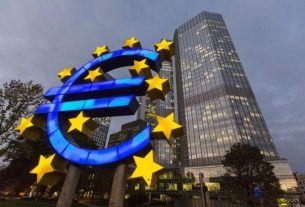Portugal has become the latest European country to issue virus restrictions amid an aggressive second wave of the coronavirus pandemic.
It comes as the global total of COVID-19 cases passed 50 million on Sunday, according to Johns Hopkins University.
“The situation that Portugal is going through is very serious. Everything must be done to control the pandemic,” said Portuguese Prime Minister António Costa after President Marcelo Rebelo de Sousa issued a state emergency.
In 121 municipalities from Monday, there will be a curfew between 11 pm and 5 am and from 1 pm on weekends to curb the spread of the virus.
Portugal has had more than 170,000 confirmed cases since the beginning of the pandemic and like many other countries in Europe, has a rising incidence rate.
The United Kingdom entered their lockdown on Thursday and has been recording around 20,000 new cases of COVID-19 per day. On Saturday, the UK recorded more than 400 deaths due to COVID-19.
Remembrance Sunday was marked with a scaled down service amid the pandemic.
France is one of the worst hit countries in Europe, and people have been under lockdown for days.
In something of a plea on French prime time television last week, Rémi Salomon, the president of the medical commission at the Paris Hospitals (AP-HP), begged people to respect the country’s lockdown.
Salomon said that soon they would have to decide who they could treat and who they couldn’t as intensive care units fill up in the country. The AP-HP is the largest public hospital system in Europe.
He added he was very worried and hoped that his words would change the behaviour of at least some of the people watching.
French officials have said that it is too early to determine if the country’s lockdown, in place for over a week, has started to help.
Many European countries have issued more restrictions, while attempting to balance the economic fallout of a full lockdown.
Italy has instituted local lockdowns in four regions and a nationwide curfew in an attempt to stop the virus from spreading, for example. Many countries have closed businesses or issued partial lockdowns.
As a result, the European Union recently cut its economic forecast, stating that the economy would not return to pre-pandemic levels until 2023.
“The forecast projects the unemployment rate in the euro area to rise from 7.5% in 2019 to 8.3% in 2020 and 9.4% in 2021, before declining to 8.9% in 2022,” the Commission said.
“This forecast comes as a second wave of the pandemic is unleashing yet more uncertainty and dashing our hopes for a quick rebound,” said Commissioner Valdis Dombrovskis.
euronews.com
pixabay


















